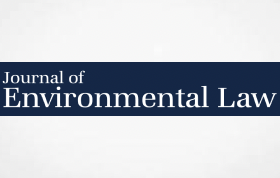Extract
1. INTRODUCTION
From time to time, I am called an empirical methodology pedant by other legal scholars. Whenever it happens, I smile politely and move the conversation on. What that label masks, I think, is a sense of unease on the part of the other person about empirical legal scholarship: that there are better and worse ways of seeing ‘the physical and socio-political complexity of environmental problems’,1 and that I am thought to be policing the choices other legal scholars are making. The thing is, I am. Especially when it comes to empirical work, where methodology matters—partly because of the nature of the inquiry, partly because of its scarcity in legal studies and the dominance of doctrinal analysis, partly because of notable examples of poor practice—in ways that it generally does not in other forms of legal scholarship.
I care deeply about empirical legal scholarship: the range and quality of work that draws upon quantitative, qualitative, mixed or experimental methods to understand a legal problem.2 In this commentary on the topic of writing tips for early-career (and established) scholars, I want to do three things. First, I want to say something about the range of empirical legal scholarship published in the Journal of Environmental Law (JEL). This provides a platform to say, second, something about the quality of that scholarship. Third, I hope to encourage environmental law scholars to do more empirical work (given its current paucity), and to do that work reflectively. 15 years ago, Liz Fisher and others wrote that, among other critical steps, environmental law scholars needed ‘to develop a greater appreciation of the debates about methodology that are being carried out by legal scholars’,3 specifically referencing the work of the 2006 Nuffield Inquiry of Empirical Legal Research.4 With some notable exceptions, debates about empirical environmental legal scholarship have not really advanced all that much since 2009.5




